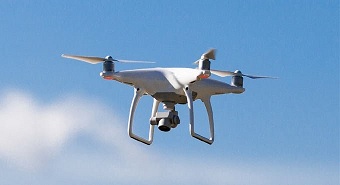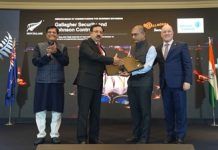Four aviation academies from Hyderabad are among the 11 academies in the country permitted by the Directorate General of Civil Aviation (DGCA) to conduct remote pilot training programmes using the Remotely Piloted Aircraft Systems (RPAS) or drones. The DGCA is taking up this initiative to encourage drone deployment / applications in the country and in order to create the needed skill base, standardisation and quality control.
It has approved 11 academies across the country so far for drone training, with four from Hyderabad which included Telangana State Aviation Academy, Wings Aviation Academy, Flytech Aviation Academy, and Asia Pacific Flight Training Academy.
The other academies in the country include Bombay Flying Club in Mumbai, Alchemist Aviation, Jamshedpur (Jharkhand), Falcon Flying Academy, Faizabad (UP), Ambitions Flying Club, Aligarh (UP), Pioneer Flying Academy, Aligarh (UP), Orient Institute, Chennai (Tamil Nadu) and GATI, Bhubaneswar (Odisha). These academies will be required to get the necessary clearances from local administration, Ministry of Defence, Ministry of Home Affairs, Indian Air Force, and Airports Authority of India, before operating the RPAS.
The training procedure manual will have to be approved by the Directorate of Flying Training, DGCA. As per the conditions, the academies cannot operate the RPAS in no-fly zones and vicinity of airports. And they will be responsible for the security of RPAS and data collected through them.
According to Amber Dubey, Joint Secretary of the Ministry of Civil Aviation, nearly 70 per cent of India’s land mass was accessible to No-Permission No-Takeoff (NPNT) compliant drone operators through the government’s single window DigitalSky platform. The remaining 30 per cent area is covered under the restricted Red Zone (urban areas, strategic assets, border areas, airport funnel zone etc) where drones can fly but with special permission from security agencies.
India is also making efforts towards third party testing and certification of drones. The Quality Council of India (QCI) has been appointed the programme partner by DGCA. The draft certification manuals have been developed and are likely to be finalised by September 10. IIT-Kanpur has agreed to share its lab facilities with QCI and DGCA for pilot testing. Five drone entrepreneurs have volunteered to offer around 10 drones for pilot testing. The aim is to get the manuals approved and notified, at least two global certification bodies to be brought onboard and the first Indian drone to be third-party certified by October 2, 2020.








